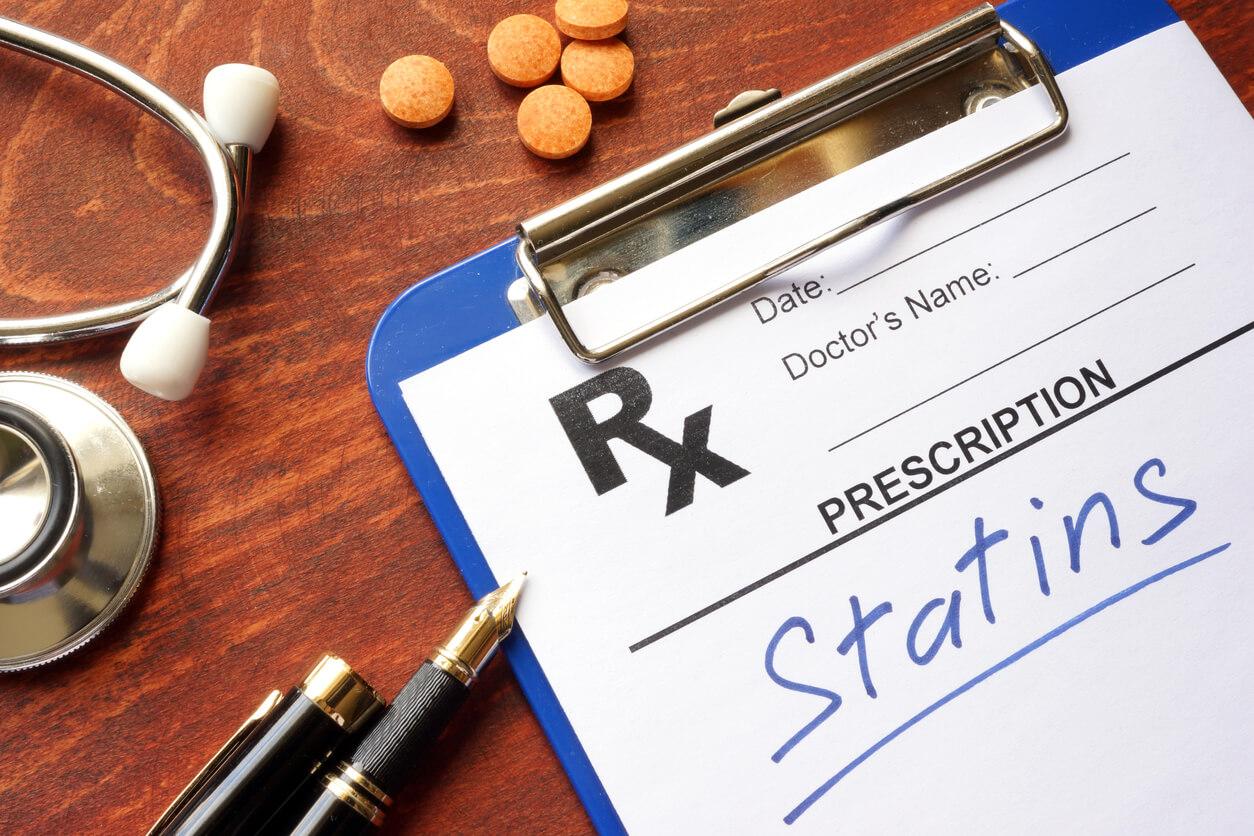Diabetes Medication: Uses, Types, and Side Effects
A complete guide to diabetes medication
What is diabetes medication?
Diabetes medication is a broad family of drugs used to help control blood sugar levels in patients managing type 1 and type 2 diabetes. While there is a diversity of diabetes medications available, they are primarily administered in oral or injectable form. Most of these drugs contain some form of the insulin hormone, which plays a key role in regulating blood glucose (sugar) levels.
In addition to their use in regulating blood sugar levels, some forms of diabetes medication have been shown to cause significant weight loss. Health care professionals occasionally prescribe medications like semaglutide (Ozempic) to help patients who are managing obesity lose weight. When used as a weight loss aid, these drugs are prescribed in conjunction with lifestyle changes such as a healthy diet and increased exercise.
No matter the use, diabetes medication is only available via prescription from a licensed health care provider. There are no over-the-counter treatment options available for purchase. Looking for more information about diabetes treatment? Book an online doctor visit on Sesame to talk to a licensed health care provider about your symptoms and the treatment plan that’s right for you.
Oral diabetes medication
Oral medications are prescribed to manage type 2 diabetes. Sometimes, these drugs may be prescribed to help patients managing obesity lose weight. The main types of oral diabetes medications approved by the Food and Drug Administration (FDA) include:
Alpha-glucosidase inhibitors:
Alpha-glucoside inhibitors slow the body’s ability to break down starches and sugars ingested from food, which slows the rise in blood sugar levels after a meal. Alpha-glucosidase inhibitors are less commonly used than other forms of medication as they can cause gastrointestinal side effects.
Alpha-glucosidase inhibitors include:
- Acarbose (Precose)
- Miglitol (Glyset)
Biguanides:
Biguanides reduce the amount of insulin your liver produces and releases into the bloodstream. These drugs also make muscle tissue more sensitive to insulin. This allows the tissue to absorb more insulin and use the glucose for energy.
Biguanides include:
- Metformin (generic for Glucophage, Glumetza, and Fortamet)
DPP-4 inhibitors:
DPP-4 inhibitors prevent the breakdown of the naturally occurring hormones GLP-1 and GIP in the body. These hormones reduce blood glucose levels but are metabolized quickly. By slowing the breakdown of GLP-1 and GIP, DPP-4 inhibitors keep the hormones active longer. This helps lower blood glucose levels as they rise. DPP-4 inhibitors are generally well-tolerated and do not cause weight gain.
DPP-4 inhibitors include:
- Linagliptin (generic for Tradjenta)
- Alogliptin (generic for Nesina)
- Sitagliptin (generic for Januvia)
- Saxagliptin (generic for Onglyza)
Sulfonylureas:
Sulfonylureas drugs trigger the pancreas to release more insulin. These drugs are fast acting and are generally taken before meals. These drugs come with some risk of lowering your blood sugar levels too much (hypoglycemia) and can cause adverse side effects when they interact with alcohol.
Sulfonylureas drugs include:
- Glipizide (generic for Glucotrol XL)
- Glimepiride (generic for Amaryl)
- Glyburide (generic for Glynase)
SGLT-2 inhibitors:
SGLT-2 inhibitors block the action of sodium-glucose cotransporter 2, a protein that helps the kidneys absorb glucose. By blocking this action, SGLT-2 inhibitors make it easier for excess sodium to be released from the body through urine. This can lower overall blood glucose levels, aid in weight loss, and decrease blood pressure. Because these drugs increase glucose levels in the urine, they may cause urinary tract infections and vaginal yeast infections.
SGLT-2 inhibitors include:
- Canagliflozin (generic for Invokana)
- Empagliflozin (generic for Jardiance)
- Dapagliflozin (generic for Farxiga)
- Ertugliflozin (generic for Steglatro)
Thiazolidinediones:
Thiazolidinediones decrease insulin resistance in your body’s tissue. They also limit your liver’s ability to produce and release glucose. By making tissue more sensitive to insulin, your body can use more glucose for energy rather than letting it build up in the bloodstream.
Thiazolidinediones include:
- Pioglitazone (generic for Actos)
- Rosiglitazone (generic for Avandia)
Injectable diabetes medication
Injectable diabetes medication is administered as a shot. FDA-approved injectable diabetes medications include:
GLP-1 receptor agonists:
Glucagon-like peptide-1 (GLP-1) receptor agonists work by mimicking the effects of GLP-1 and GIP, which help control hunger and glucose levels.
By mimicking GLP-1 and GIP, these drugs control glucose levels in the body. Overall, this helps regulate blood sugar levels and reduce body weight in patients with type 2 diabetes.
GLP-1 receptor agonists include:
- Dulaglutide (generic for Trulicity)
- Liraglutide (generic for -Saxenda)
- Tirzepatide (generic for Mounjaro)
- Semaglutide (generic for Ozempic, Wegovy, and Rybelsus)
- Exenatide (generic for Byetta)
Insulin injections
Patients with type 1 diabetes must take insulin injections, as the pancreas does not make enough of this hormone to regulate blood sugar levels. Insulin injections are commonly administered via a needle and syringe, a pen, or an insulin pump. These injections are classified based on their onset (how quickly they begin to work).
Rapid-acting insulin injections:
Rapid-acting insulin injections start to work 15 minutes after administration and last two to four hours. In most cases, multiple doses of rapid-acting insulin are needed every day.
Rapid-acting insulin injections include:
- Insulin aspart (generic for NovoLog)
- Insulin lispro (generic for Humalog)
Short-acting insulin:
Short-acting insulin starts to work 30 minutes after administration and lasts three to six hours. There are over-the-counter short-acting insulin options available for purchase. Talk to your health care provider about whether OTC medication is right for you.
Short-acting insulin injections include:
- Humulin R
- Novolin R
Intermediate-acting insulin:
Intermediate-acting insulin starts to work two to four hours after administration and lasts about twelve to eighteen hours.
Intermediate-acting insulin injections include:
- Humulin N
- Novolin N
Long-acting insulin:
Long-acting insulin is effective in the blood for twenty-four hours. These injections are usually administered daily and will start to work within several hours of administration.
Long-acting insulin injections include:
- Insulin detemir (generic for Levemir)
- Insulin glargine (generic for Lantus)
What are the common side effects of diabetes medication?
Diabetes treatment has been shown to cause side effects in some patients. Possible side effects vary depending on the drug and the method of administration.
Common side effects of oral diabetes medication use include:
- Stomach pain
- Indigestion
- Diarrhea
- Constipation
- Gas
- Urinary tract infections or yeast infections
- Weight gain
- Low blood sugar levels (hypoglycemia)
Common side effects of injectable diabetes medication include:
- Irritation or redness at the injection site
- Skin thickening
- Chills
- Cough
- Sore throat
- Stuffy or runny nose
- Weight gain
- Diarrhea
- Constipation
If you notice a skin rash, hives, swelling, difficulty breathing or swallowing, dizziness, or dramatic weight gain while taking diabetes medication, seek medical attention immediately. These symptoms of a severe adverse reaction to this medication immediately require treatment.
Before starting treatment with any diabetes medication, talk to your health care provider about any medications or supplements you are taking. Diabetes medication can interact with other medicines and substances in the body, potentially causing adverse effects. You should also tell your provider if you are pregnant or plan to become pregnant before starting treatment with oral or injectable diabetes medication.
Do I need a prescription for diabetes medication?
In most cases, yes. While some forms of short-acting insulin are available for over-the-counter purchase, most diabetes medicines require a licensed health care provider prescription.
Providers on Sesame can write a prescription – or refill an existing one – during a virtual or in-person visit. Depending on the medication, you can arrange for same-day pickup at a nearby pharmacy. Book an online consultation with a real, licensed provider on Sesame today to determine whether or not fibrate medication is right for you.
Looking for more information? Check out our blog for articles about American Diabetes Month and chronic disease management.
If you are at risk for diabetes or have been diagnosed with diabetes, you should book a video doctor visit with a licensed health care provider on Sesame to discuss your symptoms and possible treatment options.









